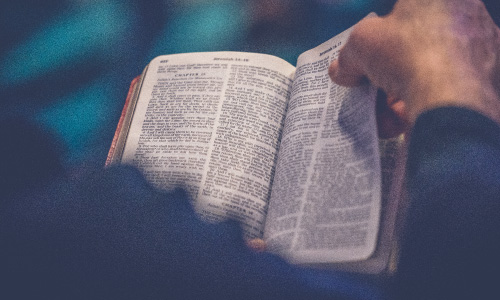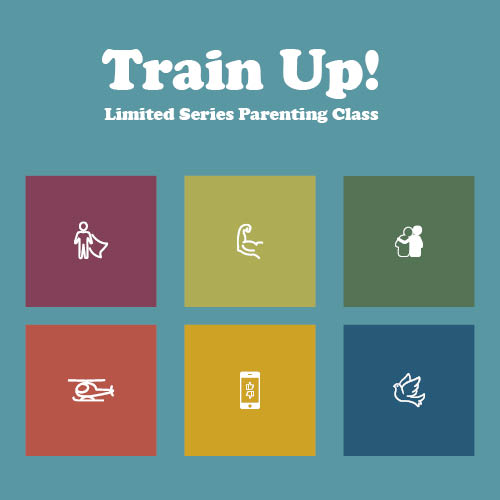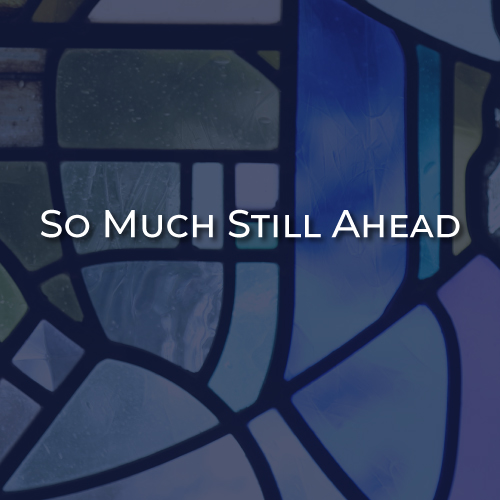All Things New
Posted on: July 28, 2022
by: Colton Underwood, Associate Pastor of Children, Youth and Families
by: Colton Underwood, Associate Pastor of Children, Youth and Families
How would you describe a “good life?” For the average person in the West, the life well-lived looks like the fulfillment of the American dream: career success, financial stability, raising a happy family, dying at an old age surrounded by family and friends. For most Christians in the West, if asked, the answer would likely remain the same with perhaps the tacked-on afterthought of “and when I die, I get go to be with Jesus.” Is that it? Does the good news of Jesus’ victory over sin and death in the world and in our lives matter no more than for the 5 short seconds after we breathe our last breath? This was Reverend Brian Sorgenfrei’s question on the final night of our second RYM (Reformed Youth Ministries) trip of the summer. It’s a question, not only for teens, but for us.
The theme for this year’s series of RYM conferences was “All Things New” taking its primary inspiration from Isaiah 43 and 65 as well as Revelation 21; glorious promises and depictions of God’s ultimate purpose for creation and humanity — to make all things new. This is our future hope, the day that we await. But what we need to understand about this future reality is that it has present implications. It is often thought that any long contemplation of the life to come might lead one away from being useful in the here and now, but the opposite should be true. Many theologians have made note of this, understanding that only by a right meditation and contemplation on the future life — when all things are made new — can we be freed to live a good life in the present. This truly good life is a life lived in the freedom that only Christ can give, a freedom both to die and to live.
As those following the path of the Cross, by fixing our eyes on our eternal destiny, we must find the freedom first to die to sin, to give up fleeting pleasure for the surpassing joy and lasting satisfaction that is in God alone. But this understanding leads not only to dying continually to sin, it ought also to lead us willingly to die to ourselves. If we truly believe that one day all will be made new, every wrong made right and every tear wiped away, it should lead us deeper and more freely into a life of selflessness, of forgoing personal satisfaction and joy in view of others, even of opening ourselves up to weep and mourn with others — something we often hold ourselves back from doing because we fear that temporary pain and discomfort will define our existence. And, what’s more, this contemplation of the future life should free us to die in an actual sense. Calvin wrote in his Institutes, “If we deem this unstable, defective, corruptible, fleeting, wasting, rotting tabernacle of our body to be so dissolved that it is soon renewed unto a firm, perfect, incorruptible, and finally, heavenly glory, will not faith compel us ardently to seek what nature dreads?” In other words, knowing that God is making all things new and that this life is only a foretaste of eternal glory, should make us free to die.
But not only should this grand picture of all things being made new give us freedom to die, it must grant us freedom also to live. As Reverend Sorgenfrei put it in our RYM large group sermons, it should free us to live life “holding on with open hands.” So many of us experience a profound level of self-imposed anxiety — especially in younger generations — simply because we fear that at any moment in time we might not be living our lives to the fullest, that we might have passed up “the chance of a lifetime” unknowingly by committing to just about anything. With a worldview that sees this life as all we get, such an anxiety about each passing moment would make sense. But in view of that Eternal Day, we ought to be free to live life “holding on with open hands,” enjoying the highs while they last and not turning away from the lows. All the while, being free also to live as glimpses of the New Creation, to love sacrificially, to welcome as God intends to welcome his own, to heal as those who serve the Great Physician, to listen as those who follow the one who hears the prayers of his beloved. This is true freedom to live.
Living as followers of Christ, therefore, is much more than just something that changes the end of this existence as we transition to the next. Again, as Brian said, “If God is making all things new, it changes our purpose. He is making all things new in you and through you.” It changes everything.
Posted in:
Thoughts from the Staff and Leaders




 Close
Close









.jpg)

